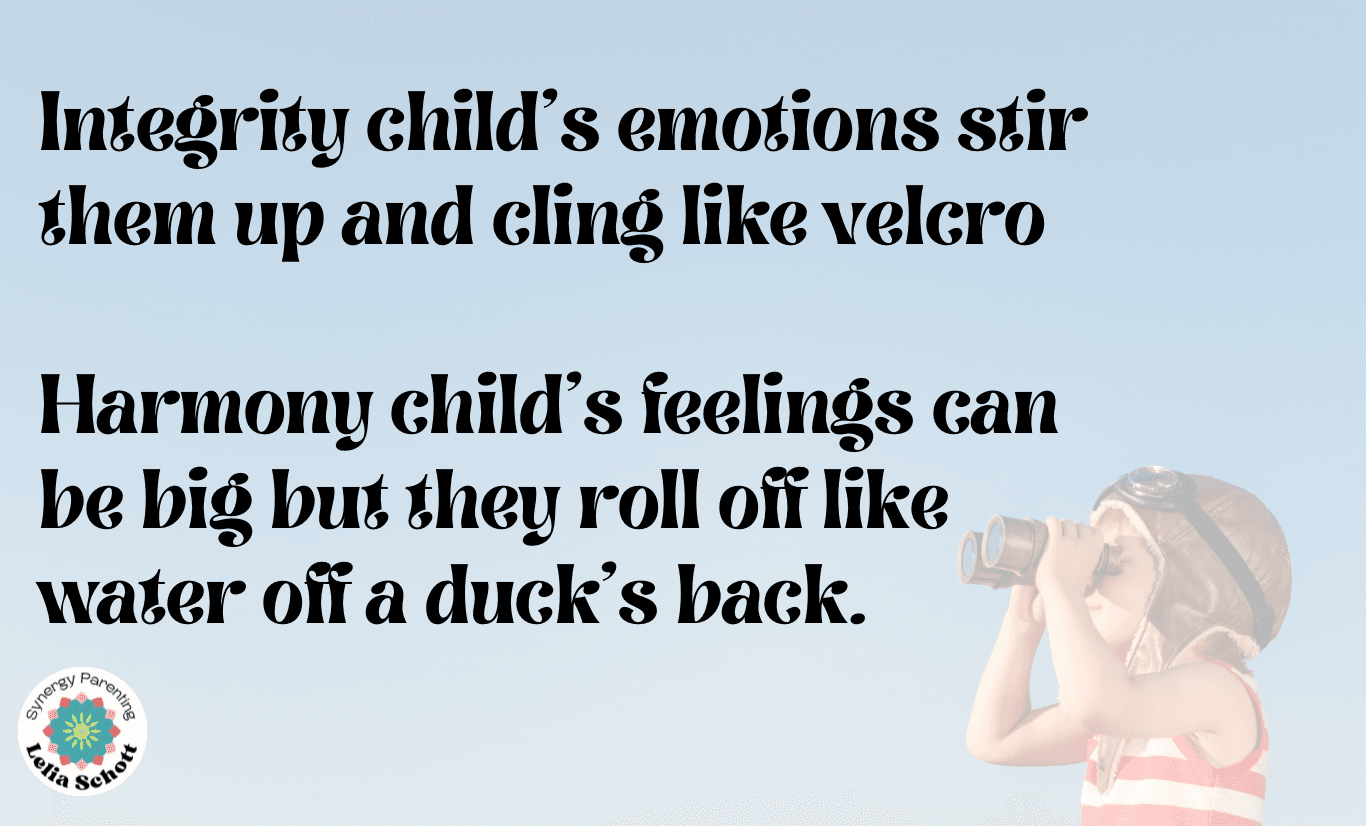
Are you a Harmony or Integrity Kid?
Published: 10/30/2024
You might ponder the essence of your children’s natures as you read the information provided. Consider whether they embody characteristics of harmony or integrity. This reflection can also extend to yourself—what qualities do you see in your character?
It’s important to remember that these labels serve a purpose. They remind us of each inner child's unique needs and feelings. Understanding these distinctions can deepen our awareness and improve our relationships with ourselves and our children.
Creating nurturing environments that support children’s emotional and social growth is essential for their well-being. According to Dr. Gabor Maté, humans have a profound need for connection to themselves, fostering authenticity, and to others, building attachment. When these connections are absent, individuals may resort to unhealthy coping mechanisms. Maté emphasizes that, for survival, attachment often takes precedence over authenticity.
To thrive, a balance between these two needs is crucial. However, circumstances may force individuals to choose one over the other. Many instinctively lean toward attachment, seeking acceptance and validation from others, as Dr. Maté and Dr. Gordon Neufeld noted.
To better understand how children address their emotional needs, I incorporate the concepts of "harmony kids" and "integrity kids," as developed by Dr. Bonnie Harris. These frameworks provide valuable insights into children's behaviors and can guide us in supporting their emotional development.
In short, Harmony kids prioritize their relationships with their parents, often suppressing their feelings or needs to avoid conflict. In contrast, integrity kids resist compromising their feelings or needs, rejecting pressures to conform.
Understanding Integrity and Harmony Children
Integrity Children
Regarding kids with a strong sense of integrity, it’s important to remember that their ideas about fairness might not match those of adults. These children often react strongly when they feel wronged. For example, if a four-year-old's Lego creation is destroyed, they might lash out at the person responsible. Parents might shout or punish in these situations, only to hear back, “That’s not fair!” or “I hate you.” This can lead to frustrating power struggles, leaving parents feeling defeated.
It is key to understand that these children can’t just follow rules that go against their beliefs. Integrity kids have their own rules, and recognizing that they feel deeply about these can change how interactions go. Instead of demanding compliance, it’s better to validate their feelings and beliefs even while setting healthy boundaries and leading with integrity. This confident and caring connection can lead to better cooperation.
It's helpful to reframe how we view a child's behavior. When a child fights against authority, they might just be seeking respect. Their defensive reactions are often because they’re overwhelmed by their feelings. Parents can help ease those defensive walls by shifting from frustration to compassion. Viewing them as sensitive individuals needing support creates a nurturing home environment.
Integrity children are also very intuitive and may express complex thoughts that confuse adults. Reflecting on their feelings helps them clarify their thoughts and fosters better understanding between parents and children.
Transitions can be particularly challenging for these sensitive kids, as they can react strongly to everyday things like food, clothing, or loud sounds. It’s important for parents to avoid putting pressure on them in these situations. Allowing kids to choose their clothing and recognizing that changes can be challenging helps reduce anxiety.
A simple “no” can lead to strong outbursts when they are denied something. Instead of outright refusal, parents can acknowledge what the child wants while offering alternatives or compromises. This approach can help lessen the intensity of their reactions.
Above all, Integrity children value authenticity. They can quickly tell when they’re not being spoken to honestly. Clear and sincere communication builds trust and respect in their relationships with their parents. Being straightforward helps these children feel understood and valued.
It’s important to offer choices and involve them in problem-solving to encourage cooperation and prevent resistance. Communication should be clear and respectful, avoiding any language that might sound threatening. Modeling healthy ways to process your feelings of frustration and communicating honestly and respectfully helps build your frustration tolerance and flexibility. Keeping consistent boundaries while maintaining a strong connection is crucial.
Harmony Children
As their name suggests, Harmony children thrive on peace and try to avoid conflict. Unlike Integrity kids, who often push back against authority, Harmony children are generally compliant and tend to back down when facing anger. They adapt quickly to different environments, much like Dandelion kids.
While Integrity children sometimes frustrate their parents, Harmony kids often bring pride and satisfaction. They strive to meet expectations and show a remarkable ability to bounce back from upsets. Their feelings tend to roll off them like water off a duck’s back, making them easier to live with and less likely to cause stress for their families.
Harmony children excel in social situations and usually have many friends because they understand different viewpoints. Their flexible nature helps them fit in well with various groups. At school, they often shine and may even act as mediators for peers who face bullying.
However, their agreeable nature has a downside. Harmony children can be easily influenced or manipulated into following what others want. This means that discipline tactics like time-outs or punishments might unintentionally silence their feelings and voices, leading to a sense of shame or unworthiness.
To counteract these people-pleasing tendencies, parents can create an environment where their Harmony child feels safe expressing their thoughts and emotions. It's important not to react angrily when the child asserts themselves or disagrees; allowing them to voice dissent is vital for their development. If parents suppress their child's need to say “no,” how can they expect them to stand firm against peer pressure later in life?
In Summary:
Understanding how Integrity and Harmony children relate to the world can help parents support and nurture their unique needs. By doing so, they can create healthier, more harmonious family dynamics.